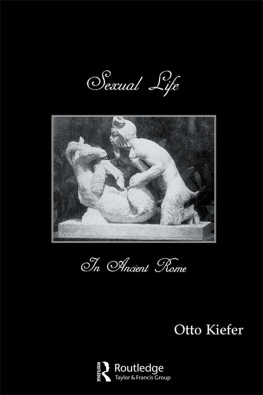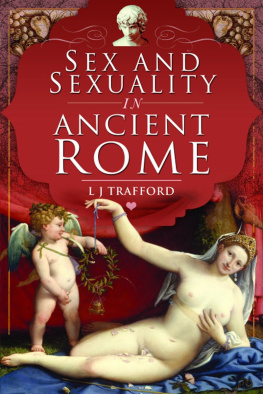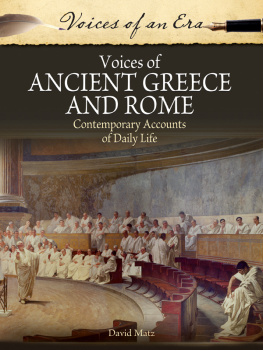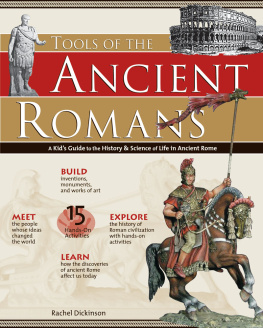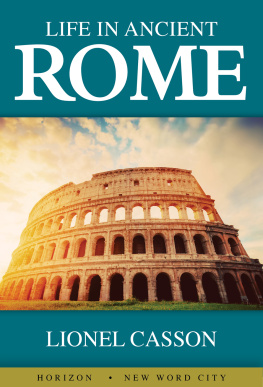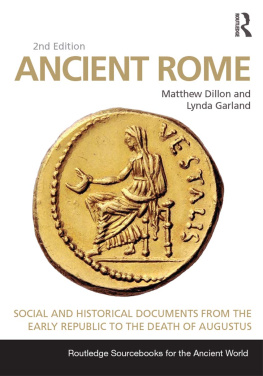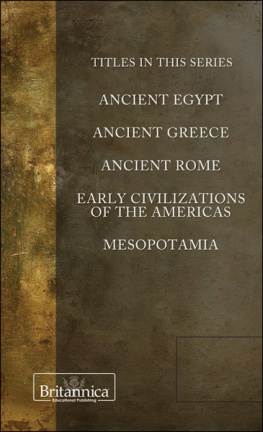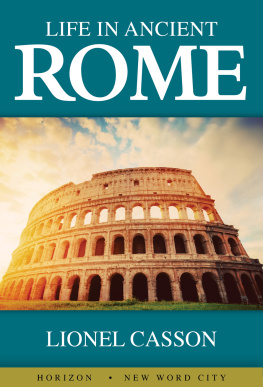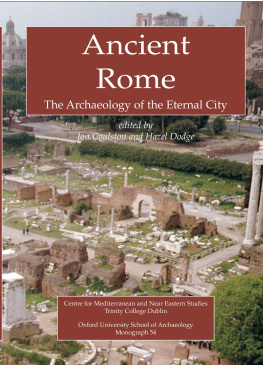Sexual Life in Ancient Rome
The psychological basis of the Roman Empire was a ruthless, frequently sadistic will to power. This impulse is highly manifest in Ancient Roman attitudes towards sex. After describing women's position in Roman society, Otto Kiefer skilfully surveys the crypto-sexual satisfaction derived by Romans from a range of activities: The sadistic treatment of slaves, savage public executions involving crucifixion and the mauling of naked, unarmed prisoners by wild beasts, and almost incredible mass-gladiatorial combats. The strong sexual element in Roman religion receives attention, as do the varying attitudes towards sex of Rome's major writers. A gallery of Emperors and Empresses complete with their often bizarre tastes, is included and Otto Kiefer takes a critical look at the notion that Rome's sexual excesses contributed to its decline and fall.
D R . O TTO K IEFER was a German Scholar in the early part of the twentieth century.
Otto Kiefer
Sexual Life in
Ancient Rome
translated by
Gilbert and Helen Highet
First published in 2000 by
Kegan Paul International Limited
This edition first published in 2009 by
Routledge
2 Park Square, Milton Park, Abingdon, Oxon, OX14 4RN
Simultaneously published in the USA and Canada
by Routledge
270 Madison Avenue, New York, NY 10016
Routledge is an imprint of the Taylor & Francis Group, an informa business
Kegan Paul International, 2000
Transferred to Digital Printing 2009
All rights reserved. No part of this book may be reprinted or reproduced or utilised in any form or by any electronic, mechanical, or other means, now known or hereafter invented, including photocopying and recording, or in any information storage or retrieval system, without permission in writing from the publishers.
British Library Cataloguing in Publication Data
A catalogue record for this book is available from the British Library
ISBN 10: 0-7103-0701-2 (hbk)
ISBN 13: 978-0-7103-0701-9 (hbk)
Publisher's Note
The publisher has gone to great lengths to ensure the quality of this reprint
but points out that some imperfections in the original copies may be
apparent. The publisher has made every effort to contact original copyright
holders and would welcome correspondence from those they have been
unable to trace.
Contents
Plautus
Lucretius
Catullus
Vergil
Horace
Tibullus
Sulpicia
Propertius
Ovid
The Priapeia
Phaedrus
Petronius
Seneca
Lucan
Persius
Valerius Flaccus
Silius Italicus
Statius
Martial
Juvenal
Apuleius
Translators Preface
We have verified and corrected the references in this book wherever possible; the numbering is that of the Oxford Classical Text, where such a text exists, and otherwise that of Teubner. We alone are responsible for the index.
All our translations of classical authors are from the original Latin or Greek. Where the reading varies, we have generally taken the variant adopted by Herr Kiefer.
The verse translations are intended to give the meaning and spirit of the originals without departing from the form in which they were written. The Latin poets generally used only three or four metres, and it might give a wrong impression of their essentially conservative technique if they were translated into a greater number of verse-forms. We have not used rhyme, because its possibilities nowadays are limited to the obvious or the reminiscent. The long-short couplet to render elegiacs seems to us more appropriate than anything like the heroic couplet: the second line in Latin is shorter than the first, and is as often as not in a position of dependence on it; that relation cannot be conveyed by the use of two equivalent lines in couplet form.
Sexual Life
in
Ancient Rome
Introduction
The Ideals of Rome
To reach a correct estimate of the position and importance of morality in the life of a nation we must first know the ideals to which that nation directs the efforts of its life. It is true that the characters of all nations and all races in the world are founded on the common basis of human instinct. But in practice the sexual morality of a nation would take very different forms if it were governed by the philosophy of Nietzsche's last period (which is not impossible) or by the doctrines of the medieval Christian church.
Historians and philosophers have constantly endeavoured to explain the character of the ancient Romans by comparing and contrasting them with some other general type the Greeks, for example, or the Germans. Even today, if we follow the trend of modern thought, we explain the greatest achievement of the Romans, their state, by reference to their national character; and assist our explanation by classifying that character under one definite type. And there seems to be some justification for this, since Roman writers (especially in the Augustan age) often speak as if the Romans could be so classified. In the sixth book of Vergil's Aeneid (851) the spirit of Anchises looks into the future and foretells the task of the unborn Roman people: Roman, remember, these shall be your arts to rule the empire of the world, to impose the custom of peace, to spare the defeated and to crush the proud. Livy, the great Augustan historian, says in the introduction to his gigantic work: If any nation can have the right to hallow its own origin and to attribute its foundation to gods, the Romans are so renowned in war that when they call the war-god Mars the father of their founder and their people, the world accepts the Roman boast as contentedly as it accepts the Roman empire. In these proud words the function and the character of Rome were described by the Romans of the Augustan age. But we must remember that they were describing an ideal whose realization was yet to come. To conclude from the assertion of the ideal that it discloses the real nature of the Romans would be as mistaken as to infer from Nietzsche's Zarathustra that Nietzsche himself was a powerful and domineering character. We constantly find that philosophers and poets proclaim as ideal that character from which they themselves are most remote. We cannot, then, conclude from the words of Livy and Vergil that the character of the Romans fulfilled itself in violence and conquest.
The poet Horace describes the old Roman stock more cautiously. A manly breed, he calls them in Odes, III, 6, of yeoman soldiers, taught to turn the clods with Sabine mattocks and to carry cut logs at the bidding of a stern mother, when the sun changed the mountain-shadows and lifted the yokes from the tired oxen, bringing the kind evening in his departing chariot. That is the stock which Horace praises, even as he condemns the degenerate weaklings of his own time: that was the stock which overthrew Pyrrhus, and Antiochus, and powerful Carthage, which laid the foundations for the empire of the world. Livy agrees with Horace on that vital point. There was never a nation which greed and extravagance invaded so late, nor one where poverty and thrift were honoured so long and so greatly. It would be easy to cite other authors who confirm this description of the early Romans as a race of simple and homely farmers. To sum up: the earliest Romans whom we see, faintly, in the dawn of history cannot be described as a nation striving for power, still less as a nation striving to conquer the world. They were a sober, hardworking, practical nation of farmers.


